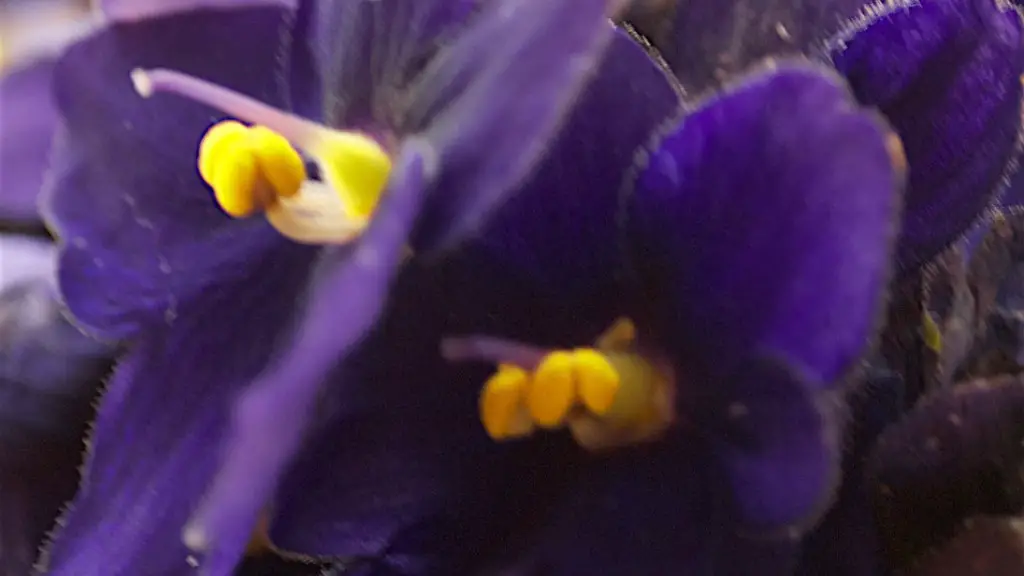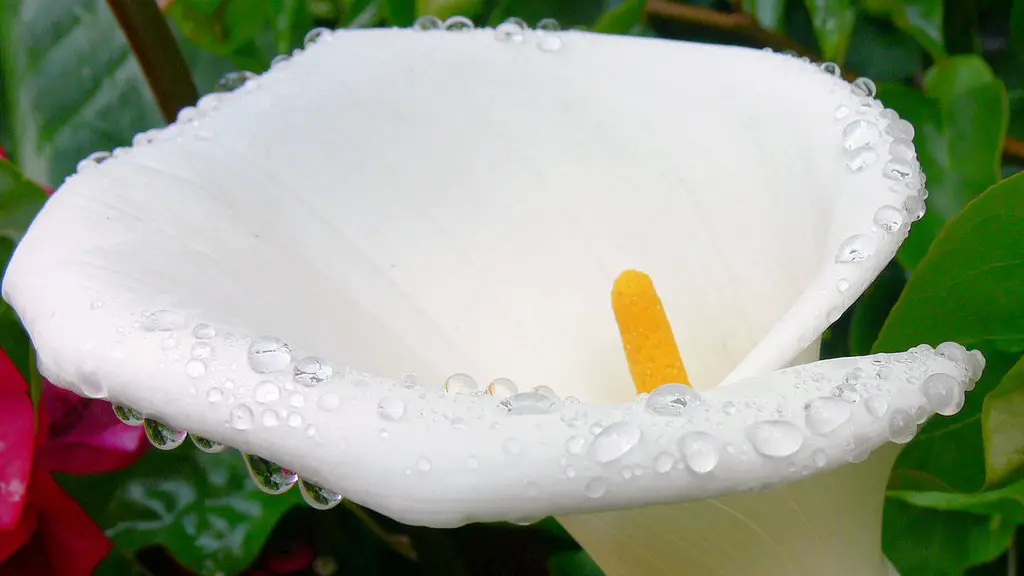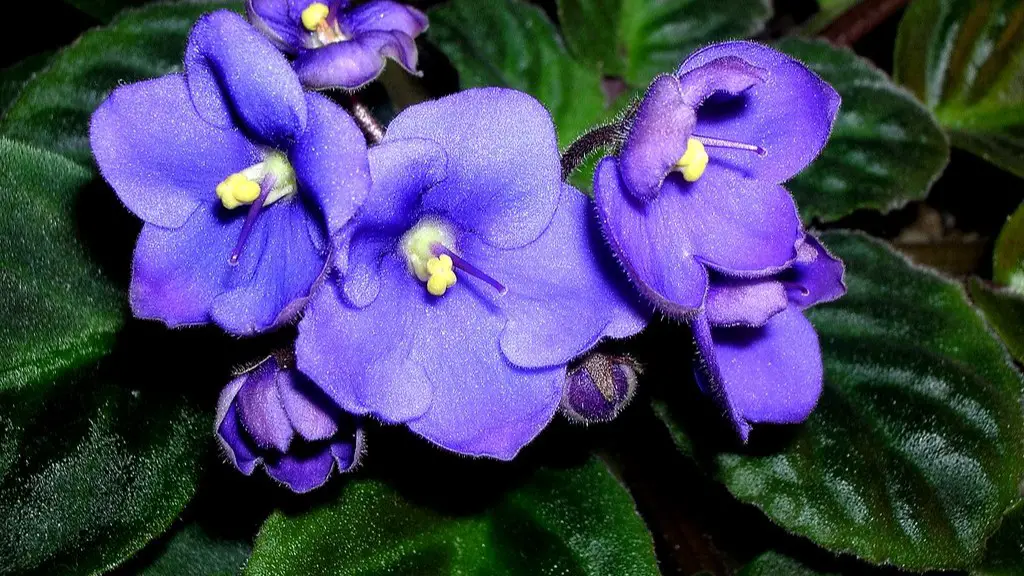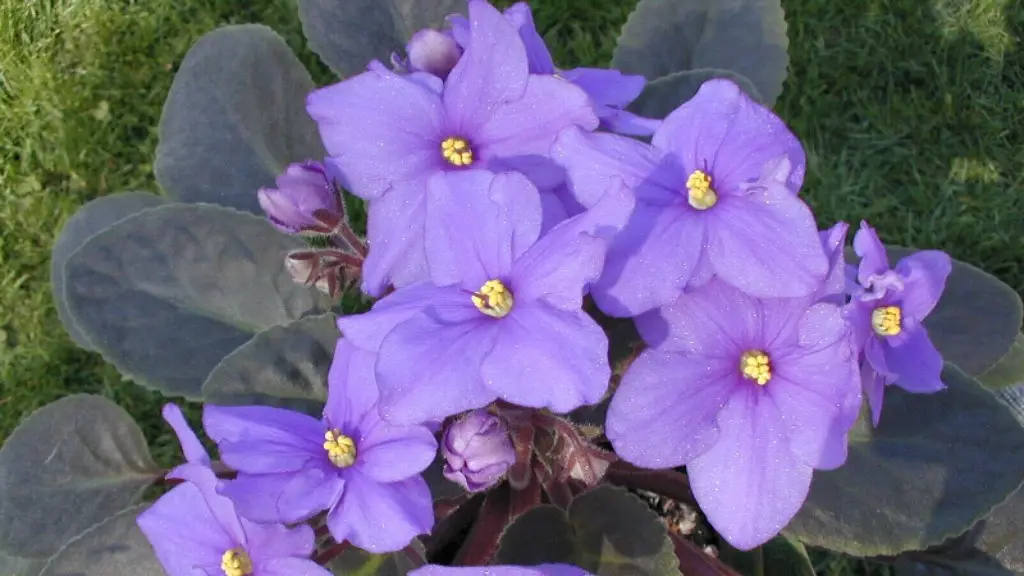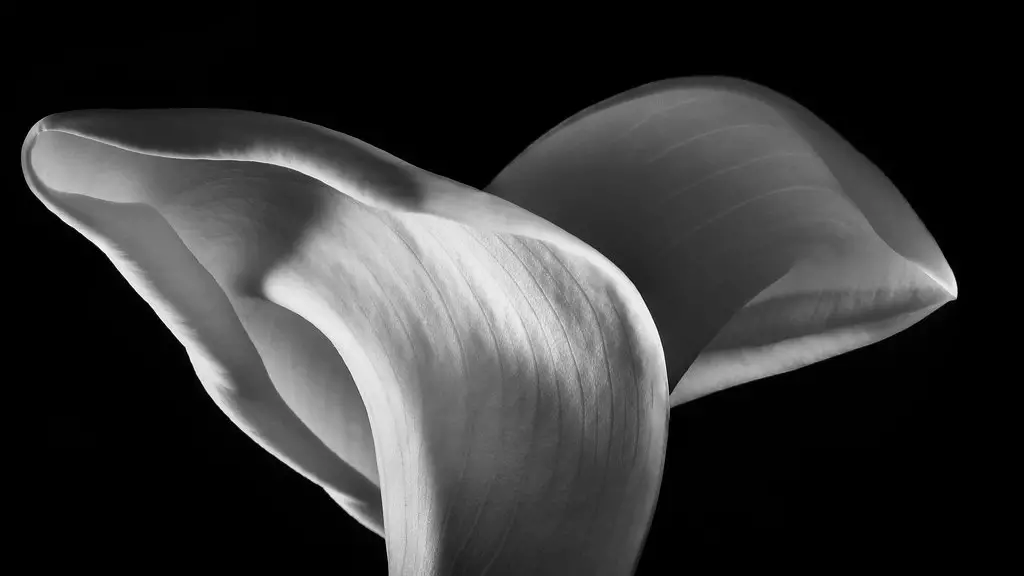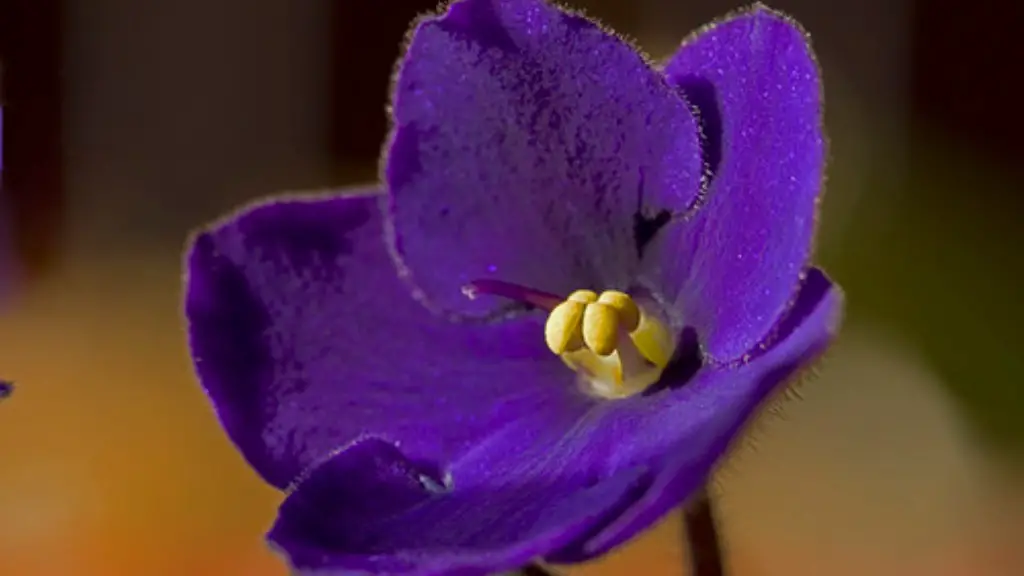There are many different types of soil that can be used for African violets, but not all of them are created equal. Some African violet soils are too dense and can compact around the roots of the plant, making it difficult for the plant to take up nutrients and water. Other soils may be too light and airy, causing the plant to dry out too quickly. The best soil for African violets is one that is well-draining but still has some moisture-retaining properties. This type of soil will allow the plant to get the moisture it needs without getting waterlogged.
The best soil for African violets is a loose, well-draining mix that contains some organic matter. A good commercial mix is fine, or you can make your own by mixing equal parts of perlite, vermiculite, and peat moss.
Do African violets need specific soil?
African violets prefer slightly acidic conditions, between 58 to 65 pH. In conventional soil, your plant won’t be able to efficiently absorb nutrients. Generally, peat moss is used to lower the pH in African violet potting soil. Coco coir has also shown to provide sufficient pH when used with traditional fertilizer.
African violets need a well-drained, but moist soil mix. A good mix would be 1 part peat moss or leaf mold, 1 part garden soil, and 1 part perlite, vermiculite, or sand. This will provide the African violet with the nutrients it needs as well as the drainage it needs to prevent root rot.
Can I use orchid soil for African violets
While African violets and phalaenopsis orchids both require well-drained potting mixes, their growing conditions are too dissimilar for them to do well in the same kind of planting medium. African violets prefer a more acidic soil, while phalaenopsis orchids prefer a more alkaline soil. Additionally, African violets require a lot of moisture, while phalaenopsis orchids prefer a drier environment. Because of these differences, it is best to plant each type of plant in a potting mix that is tailored to its specific needs.
While African violets need well-draining soil, they also need soil that can retain moisture. Soil for succulents lacks this quality, which can make it difficult for African violets to thrive.
Do African violets need deep pots?
African Violet roots don’t go very deep; they like to go sideways, so don’t use a deep pot. Your pot must have suitable drainage holes so you can water from underneath. You can also get African Violet specific pots that have a terra cotta sleeve you plant in, and a water reservoir.
If you want your African violets to thrive, it’s important to plant them in the right type of potting mix. A good African violet potting mix should be light, loose, and fast-draining, with 30 to 50 percent perlite or vermiculite. You can also mix up your own potting soil, using equal parts peat moss, perlite, and vermiculite. Keep your violets planted in small pots and re-pot them once a year to give them fresh, nutrient-rich soil.
Do African violets like bigger pots?
African violets need to be slightly pot-bound in order to thrive. This means that you should choose a pot that’s on the smaller side. A professional tip is to get a pot that’s 3-4 inches in diameter if you have a standard African violet plant.
If you’re looking for an easy way to root African violets, the good news is that it’s easy to do so using a leaf. Simply take a leaf from your existing plant or from a friend’s plant and place it in a glass of water. In a few days, you should see roots forming. Once the roots are a few inches long, you can transplant the leaf into soil.
Why do African violets need special pots
To thrive in high humidity, you need to pick a pot that helps boost humidity in the air around it. One way to do this is to choose a pot with a layer of gravel at the bottom. The gravel will help to increase the humidity in the air around the plant. Another way to increase the humidity is to use a humidifier.
If you have African violets or other blooming houseplants, you can use a product called Miracid to help them flower better. Just add a small amount of Miracid to the water when you water your plants, and you should notice an improvement in the number and quality of the flowers.
Do African violets like to be root bound?
African violets are a type of plant that prefers to be root-bound in order to bloom well. Root-bound means that the plant’s roots have become compacted over time and need to be replanted in order to continue growing properly. It is generally considered good practice to repot houseplants every few years so that the soil can be refreshed and the plant can continue to grow properly. When repotting an African violet, you can often use the same pot after cleaning it well and adding fresh potting mix.
To ensure your violets continue to bloom, repot them every 2-3 months if they are in a pot smaller than 3 inches. If they are in a pot 4 inches or larger, repot them every 6-12 months. Avoid disturbing the roots when repotting to keep the flowers or buds coming.
Do African violets need to be repotted
African violets make great houseplants because they are relatively easy to care for and they bloom regularly. They do need to be repotted about once a year, however, to keep them growing big and beautiful. It is best to inspect them first to see if their leaves and roots are healthy before repotting them.
African violets are delicate plants that require careful watering. Over watering can lead to problems such as root rot, so it’s important to only water once a week and allow the plant to completely dry between waterings. One ingenious way of making sure your African violets are never over watered is by setting up a wicking system.
What helps African violets grow?
African violets need indirect sunlight, so a north- or east- facing window is best. Keep plants away from cold glass and rotate the pot once a week so all leaves receive light. Extend daylight by placing African violets under a grow light during winter months.
Sphagnum peat moss is an excellent potting soil for African violets because it is light and porous, which enhances aeration, while keeping the soil moist.
Conclusion
There is no one type of soil that is best for African violets. They can grow in a variety of soil types, as long as the soil is well-draining and has a pH between 6.0 and 7.0. African violets also prefer a soil that is high in organic matter.
When it comes to African violets, the best soil is a light and well-drained mix. You can find African violet soil at most garden centers, or you can make your own by mixing two parts peat moss with one part perlite.
